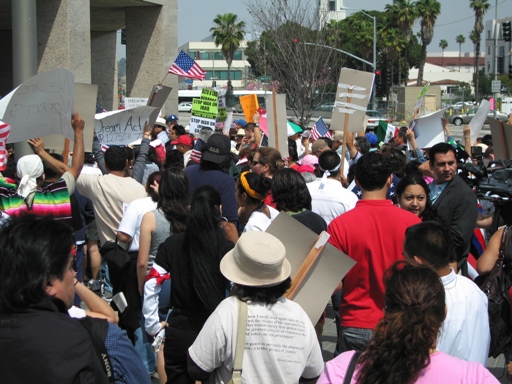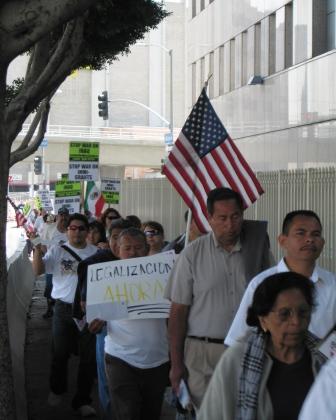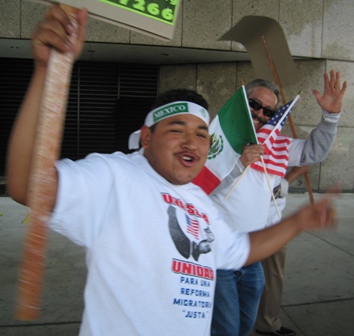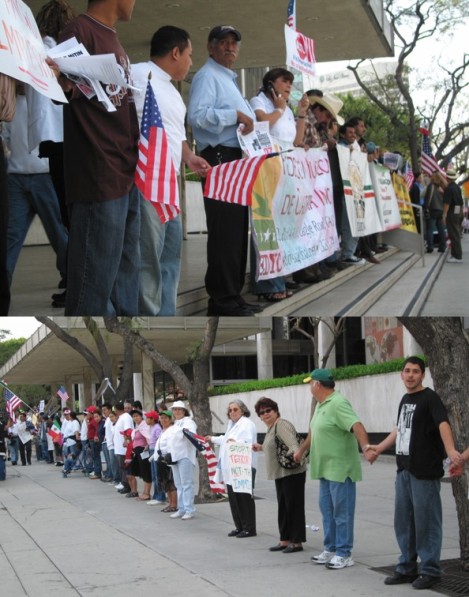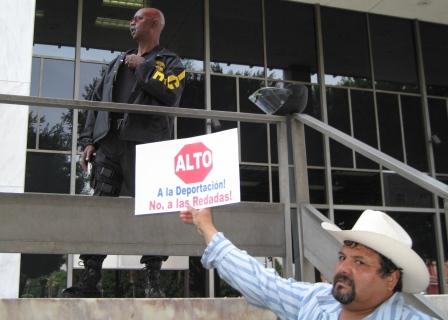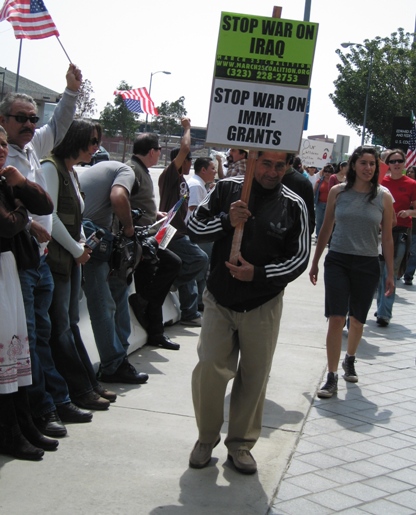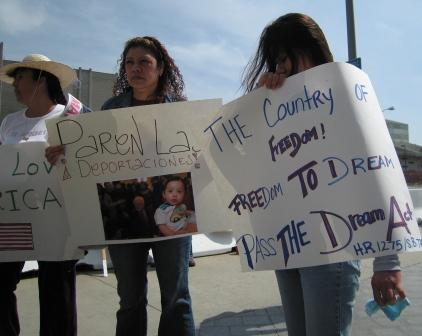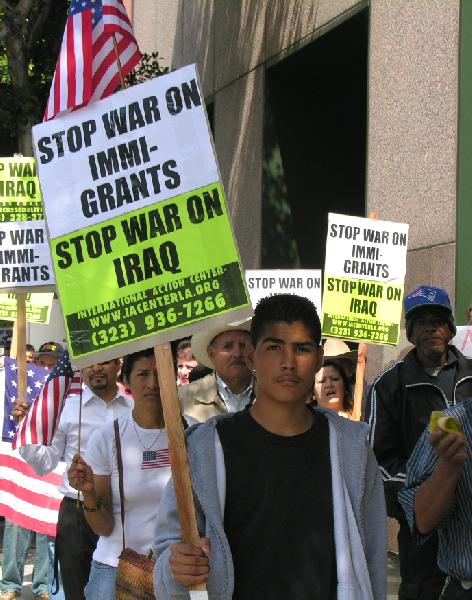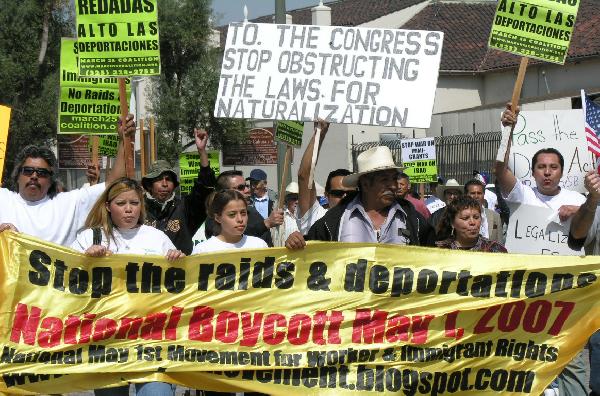| About Us | Contact Us | Calendar | Publish | RSS |
|---|
|
Features • latest news • best of news • syndication • commentary Feature Categories IMC Network:
Original Citieswww.indymedia.org africa: ambazonia canarias estrecho / madiaq kenya nigeria south africa canada: hamilton london, ontario maritimes montreal ontario ottawa quebec thunder bay vancouver victoria windsor winnipeg east asia: burma jakarta japan korea manila qc europe: abruzzo alacant andorra antwerpen armenia athens austria barcelona belarus belgium belgrade bristol brussels bulgaria calabria croatia cyprus emilia-romagna estrecho / madiaq euskal herria galiza germany grenoble hungary ireland istanbul italy la plana liege liguria lille linksunten lombardia london madrid malta marseille nantes napoli netherlands nice northern england norway oost-vlaanderen paris/Île-de-france patras piemonte poland portugal roma romania russia saint-petersburg scotland sverige switzerland thessaloniki torun toscana toulouse ukraine united kingdom valencia latin america: argentina bolivia chiapas chile chile sur cmi brasil colombia ecuador mexico peru puerto rico qollasuyu rosario santiago tijuana uruguay valparaiso venezuela venezuela oceania: adelaide aotearoa brisbane burma darwin jakarta manila melbourne perth qc sydney south asia: india mumbai united states: arizona arkansas asheville atlanta austin baltimore big muddy binghamton boston buffalo charlottesville chicago cleveland colorado columbus dc hawaii houston hudson mohawk kansas city la madison maine miami michigan milwaukee minneapolis/st. paul new hampshire new jersey new mexico new orleans north carolina north texas nyc oklahoma philadelphia pittsburgh portland richmond rochester rogue valley saint louis san diego san francisco san francisco bay area santa barbara santa cruz, ca sarasota seattle tampa bay tennessee urbana-champaign vermont western mass worcester west asia: armenia beirut israel palestine process: fbi/legal updates mailing lists process & imc docs tech volunteer projects: print radio satellite tv video regions: oceania united states topics: biotechSurviving Citieswww.indymedia.org africa: canada: quebec east asia: japan europe: athens barcelona belgium bristol brussels cyprus germany grenoble ireland istanbul lille linksunten nantes netherlands norway portugal united kingdom latin america: argentina cmi brasil rosario oceania: aotearoa united states: austin big muddy binghamton boston chicago columbus la michigan nyc portland rochester saint louis san diego san francisco bay area santa cruz, ca tennessee urbana-champaign worcester west asia: palestine process: fbi/legal updates process & imc docs projects: radio satellite tv |
printable version
- js reader version
- view hidden posts
- tags and related articles
View article without comments March 25 Begins, Againby Leslie Radford Monday, Mar. 26, 2007 at 11:22 PMleslie@radiojustice.net Today's commemoration and kickoff to the May 1 boycott against immigration raids and deportations began today, under the shadow of ICE
LOS ANGELES, 25 March 2007--The signs and flags were first, bobbing at the bottom of the long Aliso Avenue block. Then the chant, first quietly: "¿Qué queremos?" "¡Legalización!" Then louder, as I approached the marchers and the government buildings bounced the echo: "¿Cuándo?" "¡Ahora!" It looked like a small group coming up the hill, finishing up the last stretch of their march around the Federal Building, commemorating the massive outpouring of last year's March 25 Gran Marcha. But they kept coming. And just when a gap in their ranks might have signaled the end, another group turned the corner from Alameda and made their way around to the Federal Building steps on Los Angeles Street. March 25 Coalition organizers had anticipated as many as a thousand folks; they admitted they got only eight hundred out. But a couple hundred of those people holding hands across the steps of the massive, columned portico of the Federal Building and down the sidewalk was impressive. Each person there was demanding an end to the Department of Homeland Security's Immigration and Custom Enforcement raids and deportations. ICE has rounded up workers and heads of households from southern California and banished them to another country or, more immediately for the marchers, locked them up in the prison cells of the building behind us. Banners announced the presence of the Centro Azteca de Información, the Federacion Yucateca de California, the National May 1st Movement for Workers and Immigrants Rights. And in their midst was the Unión Binacional de Organizaciones de Trabajadores ex Braceros, fighting still for owed them for the first Bracero program, which ended in the mid-1960's. South Pasadena Neighbors for Peace and Justice sported their T-shirts. Other sponsors included the American Federation of State, County, and Municipal Employees (AFSCME), Federaciones y Organizaciones de Migrantes Unidas en USA (FOMUUSA), Bagong Alyansang Makabayan (BAYAN-USA), and the Frente Farabundo Martí para la Liberación Nacional (FMLN - LA). The March 25th Coalition had begun its magic, bringing together the community for the May 1 boycott and march. "¡Viva Mexico!" The crowd answered, "¡Arriba!" "¡Viva America!" A bit less enthusiasm, but still, "¡Arriba!" Finally, with a grin in her voice, the bullhorner called out, "¡Viva George Bush!" A startled silence, then giggles. The photo ops finished, it was down to the real business. The assembly retraced its steps back to the plaza on the east side of the building. We passed an ICE agent standing on the steps. When someone tried to hand him a sign that read, "Alto a al Deportación! No, a las Redadas!", he declined but volunteered, "I would, but I'm working." He posed for photographers as a protestor held the sign in front of him. It was an odd and thoughtful encounter. As we marched, the minutemen were walking up Broadway for an anti-migrant rally on the steps of City Hall with nearly two hundred uniformed cops to protect them, but the LAPD left the anti-deportation protestors on their own, in spite of the presence of cazamigrantes just a few blocks away. The marchers were converging on the plaza. Overhead, faces appeared in the narrow slits of windows, story after story, a massive prison in the heart of Los Angeles. Story after story of prisoners, prisoners' stories. Could they hear the supporters chanting below? Could they hear the calls for amnesty and an end to raids? Were they peering down at the crowd looking for friends, spouses, children? If you've ever held vigil outside a jail for an arrested comrade, the questions were the same. Today's organizers had one message: the people must defend themselves. As one told me, "The people have to rise up. The Movements have to be united. We have to educate the community." Jesse, a leader in the March 25 Coalition, promised, "We'll be back, on April 30, Children's Day, and hopefully we can encircle the building then. We've been marching here from the little church in La Placita every Wednesday at 6:00 p.m. to stop the raids." He went on, "It's George Bush who can put a stop to these raids. The Gutierrez [immigration reform] bill is not palatable for the Movement. Universal, unconditional amnesty. We'll never again support a guest worker program." He explained, "The Gutierrez bill will allow only 400,000 visas, less than half the number of workers of the Kennedy-McCain bill [S. 2611, 2006]. The government knows they need three times what they're proposing. Fruit will rot on the trees, service jobs will go unfilled. The Republicans who supported S. 2611 know the community better than Gutierrez. Braceros are still struggling for money owed them. No way will we support another guest worker program." He concluded, "The Latino Caucus needs to stop pandering to the Republicans." Later, Carlos, also from the March 25 Coalition clarified, "The division [the Latino supporters of the Gutierrez bill] isn't the Movement. It was created by the media. We are working on educating the people, to understand their human rights. The next step is emails and phone calls to our representatives, and we can do it." The efforts to bring the community together seemed to be working, and the message was heard. One protestor, when asked why she was here today, said, "I've been hearing about the raids. We've got to get the community together. This is a step to getting people together." The United Teachers of Los Angeles speaker was calling out, "Shame on the U.S. government for treating us like common criminals! Shame on you! for wanting us to turn in our children. Shame on you! for targeting the most vulnerable in our society." Another leader, Javier, laid out the path to May 1. "We have five weeks to May 1. We have fifteen states organized and networked. We've been in the media all this week. This is a step to May 1, and pressure from May 1 will wrest more concessions from the ruling class, from the political class. We will stop the guest worker program, the border wall, and militarization of the border." Maybe Father Luis Angel Nieto of East Los Angeles's Resurrection Church said what everybody was feeling, as we lingered under the prisoners' cells. Through a passing translator he told me, "I'm here because I believe immigration reform is necessary. I believe it in my heart and my mind and my soul."
Report this post as:
up Alisoby Leslie Radford Monday, Mar. 26, 2007 at 11:27 PMleslie@radiojustice.net
error
Report this post as:
by Leslie Radford Monday, Mar. 26, 2007 at 11:27 PMleslie@radiojustice.net
error
Report this post as:
along the steps and down the sidewalkby Leslie Radford Monday, Mar. 26, 2007 at 11:27 PMleslie@radiojustice.net
error
Report this post as:
alto a al deportación!by Leslie Radford Monday, Mar. 26, 2007 at 11:27 PMleslie@radiojustice.net
error
Report this post as:
stop warby Leslie Radford Monday, Mar. 26, 2007 at 11:27 PMleslie@radiojustice.net
error
Report this post as:
freedom to dreamby Leslie Radford Monday, Mar. 26, 2007 at 11:27 PMleslie@radiojustice.net
error
Report this post as:
where's freedom?by Leslie Radford Monday, Mar. 26, 2007 at 11:27 PMleslie@radiojustice.net
error
Report this post as:
Picture 2by Marcus Tuesday, Mar. 27, 2007 at 5:31 PM
Immigrant Protest a LA Federal Building, March 25, 2007
Report this post as:
Picture 3by Marcus Tuesday, Mar. 27, 2007 at 5:33 PM
Immigrant Protest a LA Federal Building, March 25, 2007
Report this post as:
|



